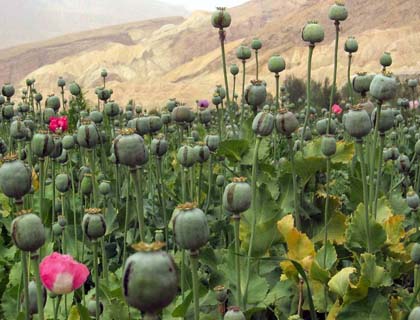KABUL - The United Nation’s International Day against Illicit drugs is celebrated each year on 26 June with the aim of raising awareness of the harm illicit drug use causes society and of encouraging governments and civil society to engage in campaigns against drug cultivation, processing, trafficking and use.
A statement from the United Nations Office on Drugs and Crime (UNODC) on Tuesday said that the the day was marked with enthusiastic celebrations in Kabul and the provincial centres of Kandahar, Herat, Balkh, Nangarhar and Badakhshan.
The events in the provincial centres were attended by over 5,000 people and were jointly planned and implemented by UNODC and the Ministry of Counter Narcotics of Afghanistan.
Sporting events, including football and volleyball matches involving prominent teams, drew large crowds which were addressed by academics, civil society leaders, elders, government officials and religious scholars from different backgrounds and all walks of life.
Anti-drug slogans and messages were broadcast throughout the day by local radio and TV stations around the country, it said, adding that the central theme of these celebrations was a call by the Ministry of Counter Narcotics and UNODC for a National Mobilization Against Narcotics.
Supporting this call were religious leaders and community elders emphasizing the dangers of illicit drugs that ultimately destroy health which is a gift and blessing from Allah.
UNODC’s Executive Director, Yury Fedotov, who called for comprehensive efforts, founded on human rights and dignity, to overcome drug traffickers and the appalling impact of drug abuse on individuals and communities.
Fedotov pointed out that “we continue to lose 600 people every day who die globally from overdoses and other drug use conditions. These deaths are unacceptable and have terrible consequences for families and communities around the world". (Pajhwok)

